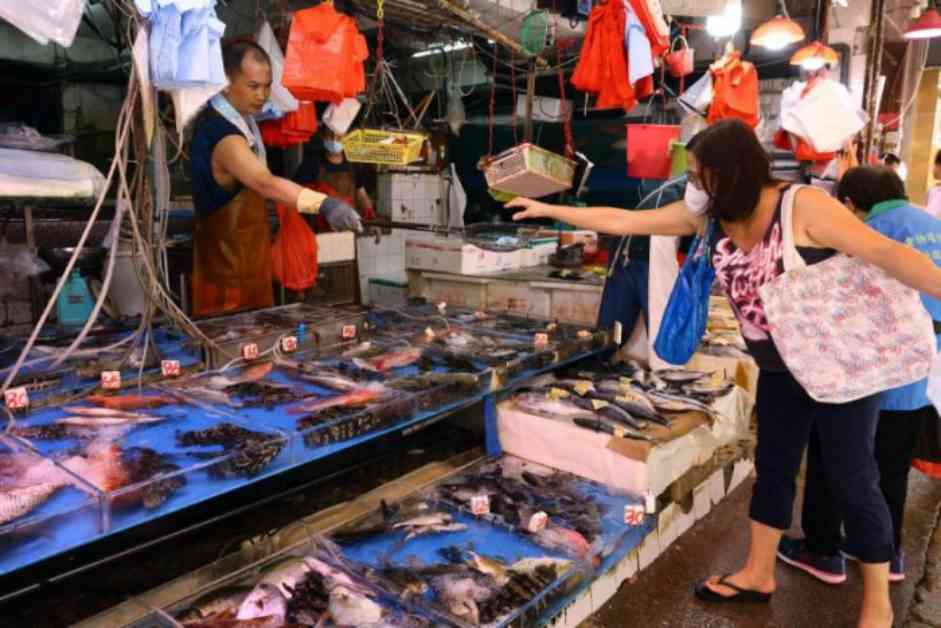Increasing Cases of Deadly Fish-Linked Infection in Hong Kong
In Hong Kong, the number of cases of a potentially deadly bacterial infection linked to contact with raw freshwater fish continues to rise. Recently, the Centre for Health Protection (CHP) reported 13 new cases of ST283, or serotype III sequence type 283, among patients who were admitted to the hospital after being infected with Group B Streptococcus. This brings the total number of cases to 40 within just a month, with health authorities expressing concern that the number may continue to increase.
The patients affected by the ST283 infection range in age from 35 to 94 and include seven men and six women. Their symptoms mainly consist of sepsis and joint abscesses. The CHP has identified these cases in individuals residing in 18 different districts throughout Hong Kong. The onset of disease for the 40 patients occurred between August 8 and September 5, with 30 of them having underlying illnesses.
Unfortunately, two patients with underlying illnesses have already succumbed to the infection, while three others remain in serious condition. However, 25 patients are in a stable condition, and 10 have been discharged from the hospital. Group B Streptococcus is typically found in the intestinal, urinary, and reproductive tracts and is not harmful in most cases. However, it can lead to severe infections in the blood, bones, lungs, or the protective membranes surrounding the brain and spinal cord.
Previous Outbreaks and Current Findings
This recent outbreak is reminiscent of a similar incident in October 2021, where at least 80 cases of Group B Streptococcus infections were recorded in Hong Kong. Within a cluster of 32 cases, two individuals tragically lost their lives. The CHP had previously linked a cluster of over 50 cases of ST283 to contact with raw freshwater fish or consumption of undercooked fish during the 2021 outbreak.
In the current investigation, the CHP has discovered that 31 patients had handled or come into contact with raw freshwater fish before showing symptoms of the infection. Additionally, six patients could not rule out the possibility of consuming undercooked freshwater fish. While investigations into the remaining cases are ongoing, none of the patients worked in professions related to fish culture or fishmongering.
It has been determined that the affected fish originated from 23 markets in 11 districts across Hong Kong, indicating a potential issue at the wholesale level. Genetic sequencing of samples from a retail freshwater fish stall matched those found in some infected patients. As a result, the CHP collaborated with the Agriculture, Fisheries, and Conservation Department to conduct an inspection at the Freshwater Fish Market under the Cheung Sha Wan Wholesale Food Market and collect environmental samples for testing and analysis.
Preventive Measures and Public Health Recommendations
To mitigate the risk of infection, the CHP advises members of the public to wear gloves when handling or touching raw freshwater fish. If symptoms such as an inflamed wound or fever develop, individuals are encouraged to seek medical attention promptly. The public is also urged to refrain from consuming undercooked freshwater fish to prevent further cases of the bacterial infection.
Medical surveillance has been conducted on over 200 workers, all of whom showed no symptoms of the infection. The Food and Environmental Hygiene Department has enhanced the cleansing and disinfection measures in relevant markets to safeguard public health. Ongoing laboratory analysis of environmental samples from wholesale fish markets aims to identify any potential sources of contamination.
The CHP continues to monitor and investigate the outbreak closely to prevent further spread of the infection. Public cooperation in adhering to preventive measures and reporting any symptoms promptly is crucial in containing the outbreak and ensuring the health and safety of the community.

















